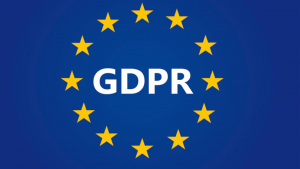By Judah Taub

“A rising tide lifts all boats,” as the phrase goes. But perhaps more importantly, it also hides any jagged rocks.
Over the last few years, many of those sharp rocks in the startup ecosystem have been covered by the rising tide of mammoth investment sums and grossly inflated valuations. With the understandable desire of startups to attract larger rounds of financing and with investors all too willing to open their checkbooks, many companies secured significant capital without much due diligence into its source. The primary concern for a startup was a “yes” or a “no”—not who was writing the check. Because at the end of the day, a million dollars is a million dollars, no?
Now that the tide is going in—and already funding is receding—founders have gotten a very cold splash in the face.
But sometimes, that’s just the thing you need to wake you from your slumber.
Not only does a tougher investment climate mean that startups are focusing much more on the basics, like streamlined operations and aggressive go-to-market strategies, it also means a lot of the money from more questionable sources has dried up—which may just be a good thing.
At the end of the day, it does matter to a company’s long-term success where their investments are coming from. Board dynamics, future rounds, and long-term growth are all impacted by this decision. Simply put, not all dollars are created equally.
As startups begin their arduous journey to ensure their companies endure both the high tides and the low, here are a few “rocks” to consider when taking capital.
The money trail
In the wake of Russia’s invasion of Ukraine, a global crisis ensued—and startups and VCs were in no way immune. Those with investors on their cap table with ties to the Kremlin or those benefiting from Putin-linked investments found themselves scrambling to adjust. Even major global brands such as Chelsea Football Club found themselves in existential turmoil.
The lesson couldn’t be clearer: Your source of capital matters. Whom you allow to invest in your idea and product reflects on you. You don’t want partners that are at risk of sanctions or who have questionable moral track records standing besides.
Track record
Companies that have taken on non-traditional investors in their space are now finding out the hard way that their backers aren’t nearly as well-equipped or just aren’t as interested to provide substantive support beyond those initial dollars and cents. For example, those who have taken investment from a long list of angels with little reserves or, on the other extreme, from a multi-billion dollar public fund where their investment represented an insignificant portion of their strategy, may find it harder to rally support in more challenging markets.
The devil is in the details
As cash becomes more important, a variety of cash nuances will likely become more important, too. Two identical startups with matching revenues and margins may not be perceived the same way if one happens to be backed by a group of individuals with little industry knowhow, or simply have no reserves. Or, if one is backed by a firm that should naturally be leading its next round and doesn’t, possibly for reasons that have nothing to do with the company, it again could have a real impact on the way the company itself is perceived.
It’s not just startups, but also VCs who are now uncovering some pocky rocks as the financing tide pulls away. Similar to startups, as VCs assess their capital situation, those who have a strong base of LPs tailored to their strategy are in a very different position to those who raised funds from opportunist LPs now pulling out.
The bottom line: Founders need to recognize that not all dollars come in the same shades of green, and should act accordingly. Smart founders own their cap table and not just their capital. In the same way that entrepreneurs are exceptionally diligent when coming up with creative products, and when there is a mismatch they are quick to adjust, they also need to approach the challenge of funding with the same level of creativity, equanimity, diligence, and determination.
A wise and measured approach to funding will lead to much smoother sailing—regardless of the state of the seas.
Judah Taub is managing partner of Hetz Ventures.
(19)
Report Post








